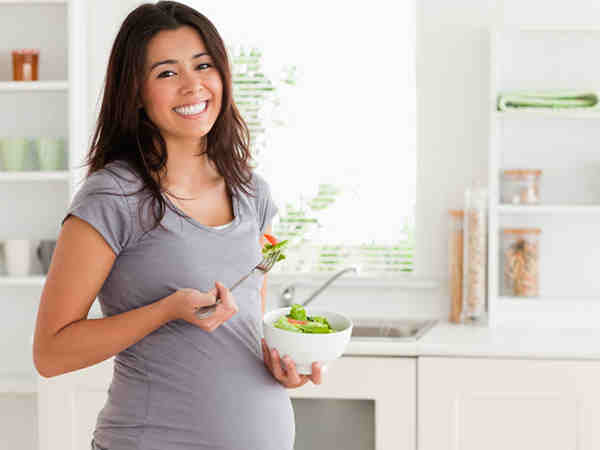
Foodborne Risks for Moms-to-Be
Eleese Cunningham, RDN
Published June 23, 2015
Handling food properly is essential to reducing the risk of food poisoning, especially during pregnancy. During pregnancy your immune system is weakened while your growing baby's immune system is undeveloped, making it much harder for both of you to fight off harmful pathogens. Therefore, food poisoning can cause serious or even life-threatening health problems for both mother and baby.
Pregnant women are especially susceptible to three specific foodborne risks:
Listeria: A harmful bacterium that can grow at refrigerator temperatures where most other bacteria do not grow. Listeria causes an illness called listeriosis, and pregnant woman are 20 times more likely than other healthy adults to get this illness. Listeria is found in refrigerated, ready-to-eat foods such as hot dogs and deli meats and unpasteurized (raw) milk and unpasteurized dairy products like soft cheeses. In order to prevent Listeria, cook all foods to proper temperatures; reheat pre-cooked foods and deli meats to 165°F; avoid unpasteurized dairy products and smoked seafood; and thoroughly wash raw fruits and vegetables.
Methylmercury: A metal that can be found in certain fish and at high levels can be harmful to an unborn baby's developing nervous system. High levels of methylmercury are found in large, long-lived fish such as shark, tilefish, king mackerel and swordfish, so be sure to avoid these fish. Pregnant women can eat other cooked seafood in moderation, including up to 12 ounces (2 average meals) per week of lower mercury seafood. These options include shrimp, canned light tuna, salmon, Pollock and catfish. Note: Albacore "white" tuna has more mercury than canned light tuna so only eat up to 6 ounces (one average meal) of albacore tuna per week.
Toxoplasma: A harmful parasite that causes an illness called toxoplasmosis that can be difficult to detect. Toxoplasma can be found in raw and undercooked meat, unwashed fruits and vegetables, soil and dirty cat litter boxes and other places where cat feces can be found. For this reason, cook food to safe temperatures, freeze meat properly, peel and wash fruits and vegetables before eating, maintain clean cutting boards and always wash your hands thoroughly with soap and water. In addition, take extra caution and wear gloves when cleaning a cat litter box, gardening or handling sand from a sandbox. If possible, avoid getting a new cat while pregnant or have someone else clean the litter box.
In order to avoid these food poisoning risks, be sure to handle food properly and follow the Four Easy Steps: 1) wash hands often; 2) keep ready-to-eat foods separate from raw meat, poultry, seafood and eggs; 3) cook to proper temperatures; and 4) refrigerate promptly at 40 degrees Fahrenheit or below.
In addition, when you're out shopping to satisfy your latest pregnancy craving, keep this checklist handy and avoid the following high risk foods. And when preparing food, be sure to use a food thermometer to ensure that foods have been heated (or reheated) to a safe minimum internal temperature.